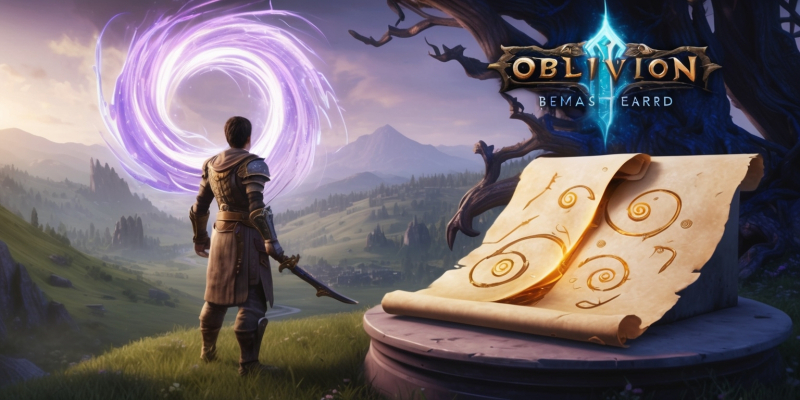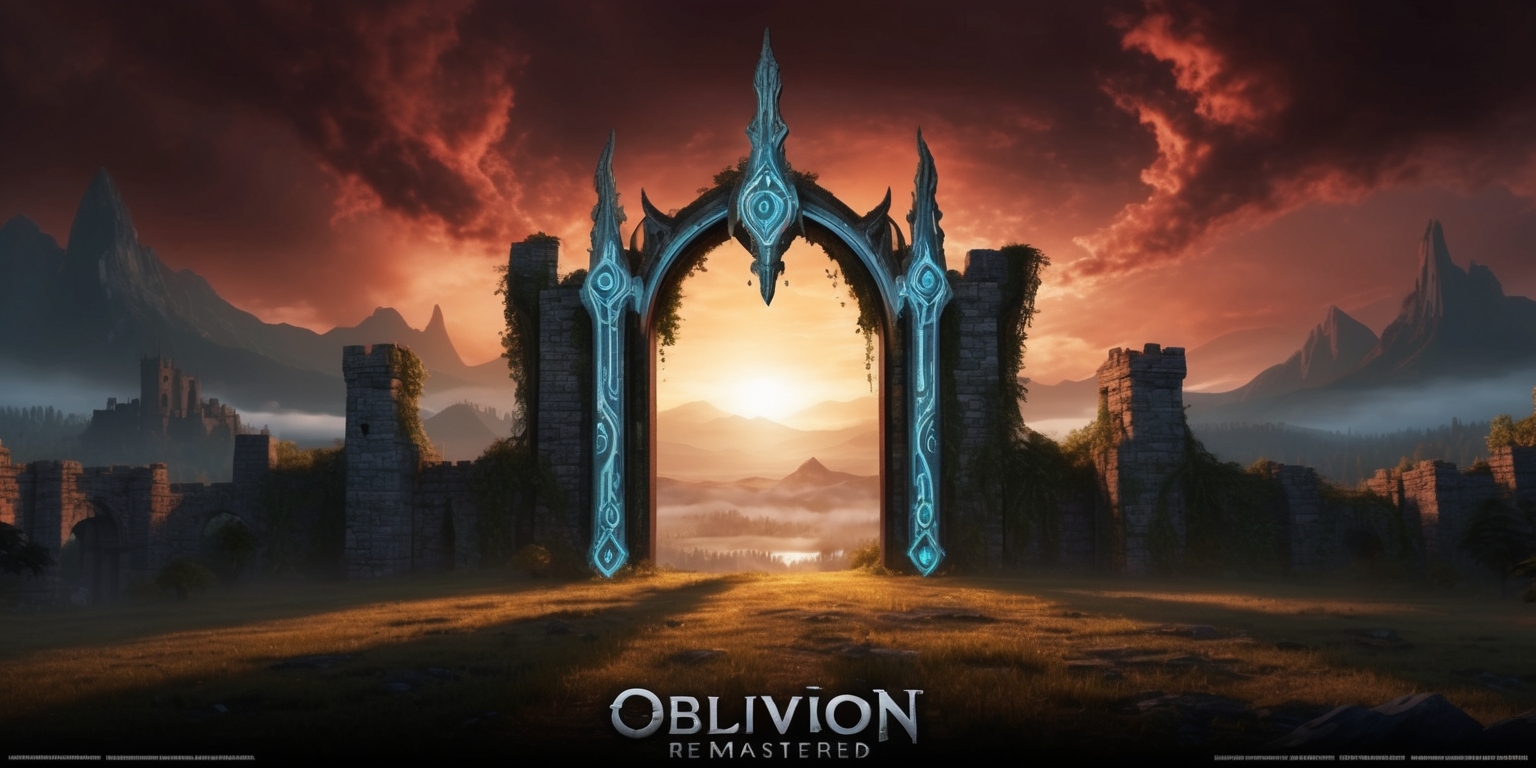Revitalizing Adventure: The Innovative Levelling System of Oblivion Remastered

The revamped system in Oblivion Remastered invites players to explore a familiar yet refreshed method of character progression. With fluid adjustments, every action taken to enhance skills gradually moves the character toward the next level. This game design retains the essence that veteran players recognize from previous titles while streamlining the process to cater to newcomers and seasoned adventurers alike. As you navigate this intricate world, multiple facets of the leveling framework—ranging from skill interactions to enemy scaling—offer a multifaceted experience that blends complexity with accessibility. The following sections delve into various elements that shape levelling, examining each component in detail through distinct perspectives.
Evolution of Levelling Mechanics
Oblivion Remastered has reimagined its levelling mechanics by streamlining and refining the process familiar to longtime players. This evolution balances the authenticity of the original framework with modern gameplay enhancements. In this updated system, players accrue experience by engaging in a variety of actions corresponding to both Major and Minor Skills. The progress bar, neatly displayed in the character screen, visually tracks your advancement toward the next level. This overhaul reduces the excessive reliance on class-specific skills that previously dictated playstyle. By broadening the scope of skill usage, the remastered version encourages experimentation and flexibility, allowing players to explore diverse strategies. In addition, the system dynamically adjusts progress as skills increase in value, ensuring a measured and engaging advancement curve throughout your gameplay journey.
Interplay Between Skills and Experience Accumulation
The core of the levelling system depends on the direct relationship between skill usage and overall experience accrual. Every time a player actively uses a skill—whether it be combat maneuvers, magic casting, or other specialized actions—it contributes incrementally to the cumulative progress bar. Major Skills, which are directly aligned with one’s character archetype, offer a larger boost and significantly impact level advancement. Alternatively, Minor Skills still play a notable role but at a slower pace, ensuring that all aspects of the character’s abilities are cultivated. This balance allows players to build well-rounded characters without restricting them to a narrowly defined set of actions. As each skill rises, so too does the value of the actions performed, encouraging an adaptive playing style that rewards experimentation and consistent engagement in varied gameplay activities.
Nuances of Attribute Distribution and Virtue Allocation
A key facet of progression in Oblivion Remastered is the thoughtful allocation of points into Attributes using Virtues. When a level up is triggered, players are rewarded with an opportunity to enhance specific Attributes that directly influence various skills. The system provides 12 Virtues that players can distribute among up to three Attributes, with strict limits ensuring no single attribute exceeds a preset threshold, except for the uniquely balanced Luck. This framework offers a strategic depth without overwhelming new players, Here’s a rephrased version that maintains the original context: "since the decisions made during this stage have" long-lasting effects on gameplay. The refined mechanics encourage a careful evaluation of one’s playing style, emphasizing the importance of both power and versatility. The tangible benefits of each allocation enhance overall capabilities, making every decision during this process crucial for a robust character build.
Integrating Rest and Recovery in Progression

In the remastered version, the inclusion of a rest mechanic introduces an intriguing delay between leveling milestones. Players must rest for a minimum period—set at one hour—before the level up and subsequent attribute enhancements become available. This rest is not simply a lull in the action, but a vital element of the gameplay cycle that allows accumulated progress to manifest into tangible upgrades. The necessity of resting adds a layer of strategy; players must plan their adventures around the timing of rest periods, especially when managing prolonged engagements in dangerous environments or challenging quests. Additionally, the system retains progress towards the next level even if the player delays rest, ensuring that no effort is wasted. This blend of immediacy and patience enriches the overall experience of progression and highlights the connection between in-game actions and character development.
Customization Through Character Development Flexibility
Oblivion Remastered empowers players with a flexible character development system that defies rigid traditional boundaries. While previous iterations often rewarded players strictly for actions that aligned with their initial class choices, the remastered version encourages a broader spectrum of gameplay activities. Players gain experience through an array of actions, making it feasible to experiment with an assortment of skills without the penalty of slower progression. This adaptive system not only benefits players who wish to explore non-conventional playstyles but also enriches the role-playing element inherent in the game. The newfound freedom allows for organic growth, where every decision—from combat choices to magic usage—contributes to the overall build. In doing so, the game nurtures a dynamic environment where creativity in skill usage and character development is celebrated rather than constrained.
Dynamic Adjustments via Enemy and Difficulty Scaling
Another notable layer of complexity in Oblivion Remastered lies in its approach to enemy scaling and difficulty adjustments. The game ensures that adversaries grow in strength alongside your character, thereby preserving the challenge throughout your progression. This dynamic scaling mechanism prevents the leveling process from becoming trivial, compelling players to continuously adapt their tactics as they progress. Additionally, an integrated difficulty slider provides the flexibility to tailor combat encounters to individual preferences. Whether you seek a more relaxed exploration or a rigorous, strategic battle experience, the system accommodates diverse playstyles. This balance not only deepens the gaming experience but also inspires continuous strategic planning. Alongside skill development and attribute allocation, the enemy scaling systems cement a dynamic, ever-changing gaming universe that constantly transforms parallel with the protagonist’s journey.
Balancing Traditional and Modern Gameplay Elements
The new levelling system in Oblivion Remastered harmonizes traditional role-playing mechanics with fresh, modern elements. Returning players will recognize familiar underlying principles, such as experiencing progress through everyday activities and focused combat actions. However, the remastered release refines these elements to offer a smoother, more accessible experience. By minimizing the need for unconventional methods of advancement that previous game versions sometimes necessitated, the game keeps progression straightforward yet strategic. The revamped system does not alienate those who enjoyed the original game; rather, it builds upon its legacy by introducing new ways to harness experience without compromising the underlying gameplay ethos. This thoughtful synthesis invites both loyal veterans and new players into an environment that respects its roots while confidently stepping into new territories of game design innovation.
Comparative Insights: Original vs. Remastered Progression
A detailed investigation into the distinctions among the… original and the remastered levelling systems highlights a nuanced shift in design philosophy. In the original game, players were often compelled to focus on a specific subset of skills to maximize efficiency, which sometimes resulted in unconventional character builds. By contrast, the remastered version broadens the avenues for progression, ensuring that all skills, whether major or minor, contribute meaningfully to overall advancement. This change not only reduces the pressure on adhering strictly to one playstyle but also encourages players to experiment with a wide array of strategies. The modifications emphasize balance and player autonomy, providing an experience where the traditional roots are acknowledged yet innovatively updated. Such improvements render the system more forgiving and inclusive, ultimately leading to a richer, more engaging gameplay experience where adaptability is key.
Exploring the Importance of Major Skill Focus
Within the revamped framework, Major Skills assume critical importance in the levelling process, resonating closely with the character’s chosen role and identity. Actions tied to these skills yield a greater reward, both in terms of direct experience gain and secondary attribute enhancements. By explicitly linking major skills to defined class characteristics, players can more readily align their developmental focus with their intended playstyle. Nonetheless, the system also acknowledges the contributions of Minor Skills, allowing for a balanced buildup that prevents a singular focus from dominating the character's progression. This nuanced approach creates a dynamic where players can develop a well-rounded, robust character without foregoing the benefits of specialization. In doing so, the game maintains a delicate equilibrium between guiding the player’s progression and offering enough flexibility to entertain diverse and evolving combat or exploration strategies.
Strategies for Consistent and Efficient Advancement
As players engage with the multitude of available actions within Oblivion Remastered, strategic planning becomes essential for continuous, efficient level advancement. The mechanics reward consistency, whether by repeatedly undertaking actions linked to Minor or Major Skills. A savvy player recognizes the importance of maintaining equilibrium between deliberate combat techniques, exploration of varied environments, and addressing unforeseen challenges as they strive to enhance their skills. The system further supports this through the benefit of accumulating overflows of experience, allowing progress to be carried forward even when rest periods are delayed. Therefore, continuously refining player tactics and focusing on specific actions not only accelerates the journey toward the next level but also guarantees that each encounter provides substantial value. This interplay of deliberate design choices encourages a proactive engagement with the manifold systems available in the game world.









User's Reviews (0)
Your comment is awaiting moderation. We save your draft here
Leave a comment